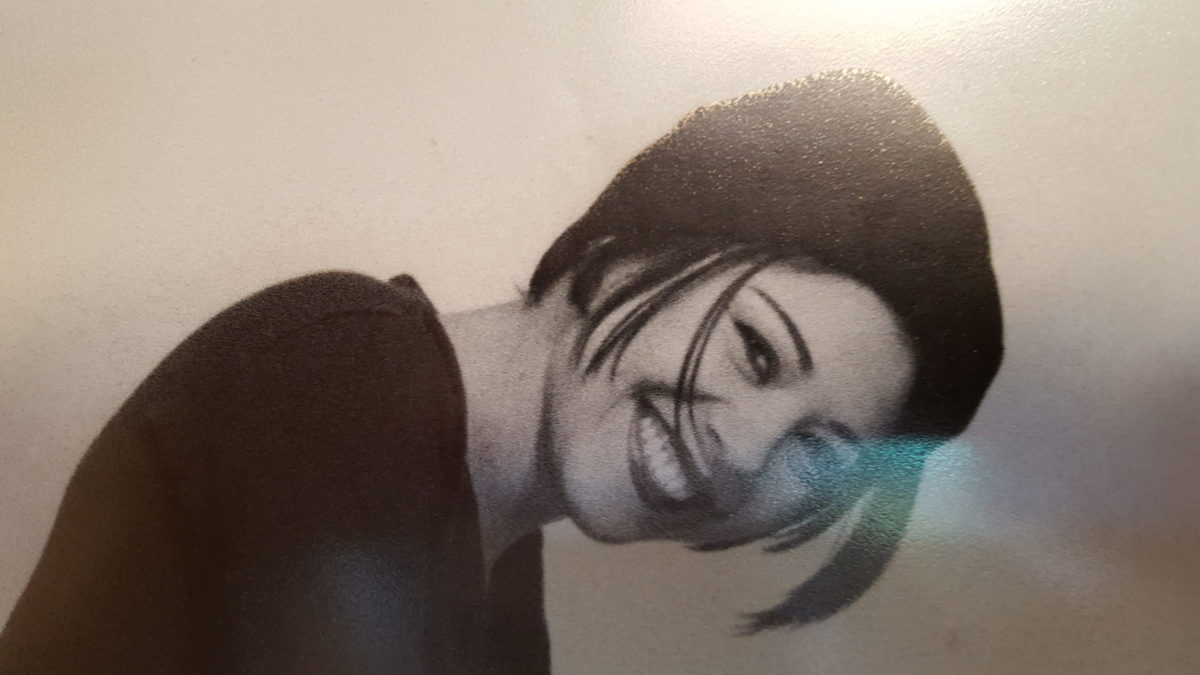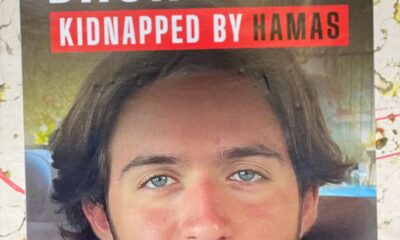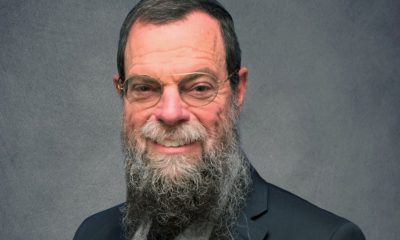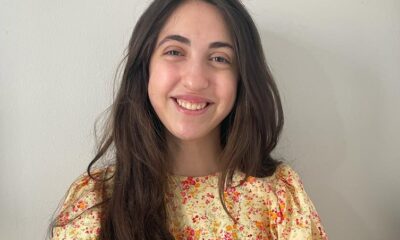
Featured Item

Dizengoff attack still haunts families 25 years on
Published
3 years agoon
South African-born Tali Gordon and her friend, Inbar Atiya, had gone to Dizengoff Center to find an outfit on the night of Purim 25 years ago, but instead of celebrating the chag, they were killed in a terrorist attack outside the shopping centre.
So many years later, her father, Barry Gordon, is still haunted by the loss of his beautiful daughter who was killed at the age of 24. Tali was killed on 4 March 1996, when a suicide bomber detonated a 20kg nail bomb at a busy intersection next to the centre in the middle of Tel Aviv.
He murdered 13 people, including Tali. Her father, who lives in Johannesburg, says, “Every time there’s another terror attack, it adds fuel to the fire. You don’t get over it, the pain gets worse.”
Tali was living in central Tel Aviv, and she and her friend went to Dizengoff Center, which had a number of shops where one could buy dress-up clothes for Purim, he recalls.
They walked out of the centre and had crossed the road to the ATM. While they were waiting at the traffic light, the Hamas terrorist blew himself up in the middle of the road. Both Tali and Inbar, who was 22, were killed instantly.
“They died together. I first heard about it when my son phoned me in the middle of the night from the mortuary in Jaffa. Tali had a small tattoo of a seagull on her right shoulder, and that’s how they identified her. They also found her car in the vicinity.”
Tali was born in South Africa, but grew up in Israel. Her father spent his whole life in Johannesburg, and attended King David schools. Fiercely Zionist, he headed to Israel straight after school as a volunteer after the Six-Day War. He was there for three years, and met his first wife there. They went to South Africa, where they had two children, Tali and Alon. After 1976, they returned to Israel, but eventually he and his first wife divorced and he returned to South Africa. The children remained with their mother, and visited him once a year. Tali spent a year in Johannesburg, and attended King David.
After school, she went to the army. Talented in languages, she could speak Arabic, French, Hebrew, and Spanish, and she worked in intelligence. She was also recruited to the paratroopers. After the army, she travelled widely.
“She was quite worldly, and went to America and the Far East. She started studying political science at Bar Ilan University, and was very politically motivated. Without a doubt, she would have gone into politics. She was a remarkable young lady and we had a special bond,” Barry says.
Strangely, a number of disconnected South African families were also affected by the tragedy, including one Durban family in which a mother and sister were killed.
“What was so harsh about this pigua [terror attack] was the range of age of victims. There was Yovav Levy, who was 13 years old. I’m in daily contact with his mother since we met at the cemetery two years ago. The oldest victim was 84. Most of the victims were young – two were 13, one was 14, and one was 15,” Barry says.
He wasn’t able to get to Israel in time for the funeral. But there was another memorial on the seventh day after the tragedy, and about 2 500 to 3 000 students attended. His daughter is buried in a cemetery just outside Tel Aviv.
Barry says the families of the victims are like a support group. “We share our sorrow. There is such a void. They relate to your tragedy, and you get a bit of closure in that moment.”
His son was deeply affected by the loss of his sister, and has never managed to live a normal life. The family has also been affected by another tragedy. Barry’s mother (Tali’s grandmother) was killed two years before the terror attack in a hijacking in Johannesburg. “Her grandmother took her travelling around the world, and her death really affected Tali.”
Barry remarried, and he and his second wife, Theresa, had a girl named Tashima. “She is named after Tali and is the spitting image of her. She is in her late 20s, and lives in Panama City with her boyfriend, working as an interior designer.”
The Gordons travel to Israel every year to commemorate the tragedy. Last year, they were there in late February and the memorial ceremony was cancelled as COVID-19 began to grip the country. Still, they went to the cemetery, and to the spot where the attack happened.
“It’s on the corner of King George and Dizengoff. There’s a memorial stone there, and a place to light candles. I don’t like the place very much, it gives me cold shivers. But when we were standing there, we saw a photographer and an Israeli actor doing an interview. They asked what I was doing there and I said I lost my daughter in the attack. They said they were doing a piece on the history of Dizengoff, and asked if they could interview me there and then. It was very emotional.”
Another strange coincidence was when they went into the centre to get something to eat, and spoke to the security guard who checks everyone at the entrance. “I told him I lost my daughter in the attack, and he said he was there that day. He got shrapnel in his arm, and it took almost nine months for him to recover. He saw the carnage.”
Barry says that in a strange way, the people who die in terror attacks are “the lucky ones”.
“They go to heaven, they’re with the angels, they’re done. But the families left behind – their lives are changed forever, never to be the same.”
Even though the Israeli government pays a monthly stipend to families of victims of terror, “the injured and their families suffer the most. The ramifications are endless”.
For him, the pain never goes away. “Terrorism has an impact on a person mentally, physically, spiritually, and religiously. Your loved one is there one minute, gone the next. I wonder about so many things, like if I would have had grandchildren by now. Terror means you don’t just lose that person, but an entire generation.”










